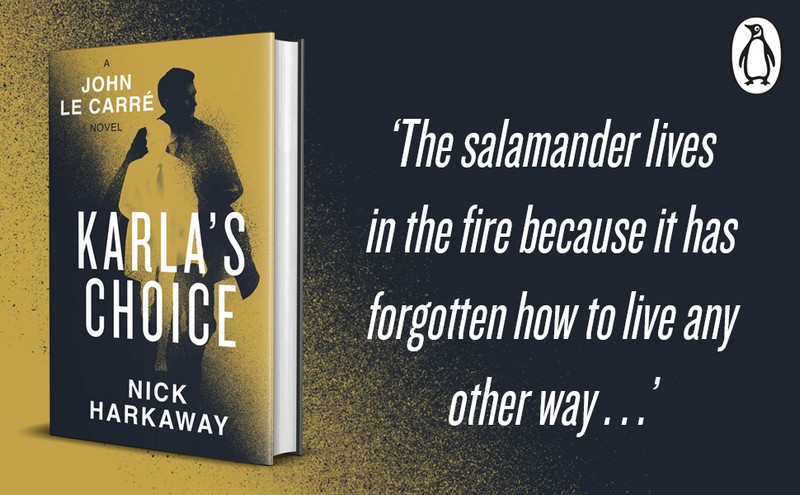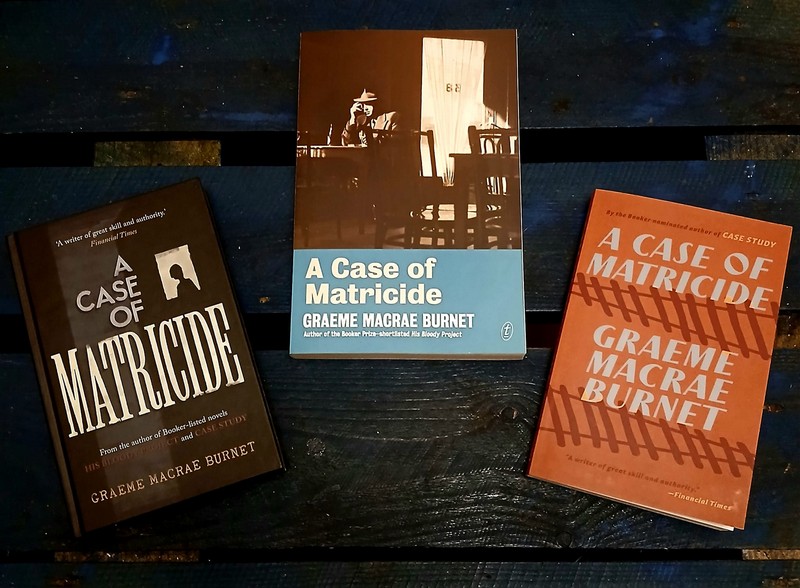 There is a grand tradition of former spies going on to write spy novels – Ian Fleming and John Le Carre are probably two of the best known. But there are also authors like Stella Rimington (most recently – The Devil’s Bargain), Joe Weisberg (An Ordinary Spy and also The Americans TV series) and Jack Beaumont (The Frenchman). Into this world steps former CIA Analyst David McCloskey with Damascus Station; a novel of espionage and counter-espionage set in Syria at the start of its bloody civil war.
There is a grand tradition of former spies going on to write spy novels – Ian Fleming and John Le Carre are probably two of the best known. But there are also authors like Stella Rimington (most recently – The Devil’s Bargain), Joe Weisberg (An Ordinary Spy and also The Americans TV series) and Jack Beaumont (The Frenchman). Into this world steps former CIA Analyst David McCloskey with Damascus Station; a novel of espionage and counter-espionage set in Syria at the start of its bloody civil war.
CIA operative Sam Joseph is coming back from the loss of a colleague and is tapped to recruit a potential source in the Syrian Government. Mariam Haddad works in the Palace but her uncle is also involved in a secret chemical weapons program. Sam manages to recruit Mariam but not without breaking one of the cardinal rules of running an agent – he falls for her. Back in Syria, Sam must run Mariam to get vital information in a country riven by paranoia, corruption and a growing civil war.
Damascus Station is an effective thriller that will probably be appreciated most by people with a fascination with the details of spy craft. Sam has to train Mariam in the ins and outs of being a spy but then also has to dig deep into his own training when the Syrians deploy a group of Russian experts to watch him. Meanwhile the question of what happens to intelligence that is gathered, how it is used politically but also the layers of agents and double agents that make the job even harder.
While this boils down a little to good versus evil, McKloskey tries to being some nuance to his Syrian characters. While there are those who are just bloodthirsty and revelling in a despotic regime, there are others who start to question where their choices have lead them. He also dips into the Syrian resistance to give a sense of what was driving people towards religious extremism as a response to the Assad regime. And while it is not a true story, many of the events described in Damascus Station did occur in some fashion in Syria between 2011 and 2012.
But at its heart, the narrative is driven by a potentially doomed love story. Sam and Mariam “break the rules” to give what might otherwise be a very technical heavy story some real heart. Other personal relationships – between Sam and his colleagues and Mariam and her family – serve to humanise the story.
Damascus Station succeeds through its verisimilitude. It has enough detail to make readers feel like they are learning something about the world of spies and espionage, still very much at play even following the end of the Cold War. And McKloskey manages to set up and deploy this knowledge in a way that builds to both a fascinating and page-turning final couple of acts.
Robert Goodman
For more of Robert’s reviews, visit his blog Pile By the Bed
Other reviews you might enjoy:
- Gabriel’s Moon (William Boyd) – book review
- Karla’s Choice (Nick Harkaway) – book review
- Silverview (John Le Carré) – book review

Robert Goodman is a book reviewer, former Ned Kelly Awards judge and institutionalised public servant based in Sydney. This and over 450 more book reviews can be found on his website Pile By the Bed.




David McCloskey’s Damascus Station is indeed a first class read unlike many Middle Eastern spy novels written by those with CIA or related intel backgrounds who “attended” the Iraq wars et al.
As for those who apparently worship all things John le Carré, let us not forget about John le Carré the spy. While John le Carré is arguably the best ever author in the espionage genre that does not mean he was the perfect spy. In real life he had more Achilles heels than he had toes!
Let’s not consign to oblivion the fact that David Cornwell (aka John le Carré) lost his job in MI6 thanks to Kim Philby. Let’s not overlook David’s penchant for mistresses. Let’s not forget his Dad spent time behind bars. Indeed, one might be forgiven for thinking John le Carré authored a novel called The Imperfect Spy.
What’s more his contemporaries in MI5, MI6, the SAS and other secret organizations in Great Britain who had seen action in World War 2 had about as much time for him as they did for what they perceived to be office boys such as Kim Philby. There is an intriguing article dated 31 October 2022 about this in the News Section of TheBurlingtonFiles website.
The Burlington Files are a series of curious fact based books about Pemberton’s People. Only one has been released to date (for legal reasons etc) and it is worth a read or reread just as I will be re-watching the 1979 version of Tinker Tailor this weekend!